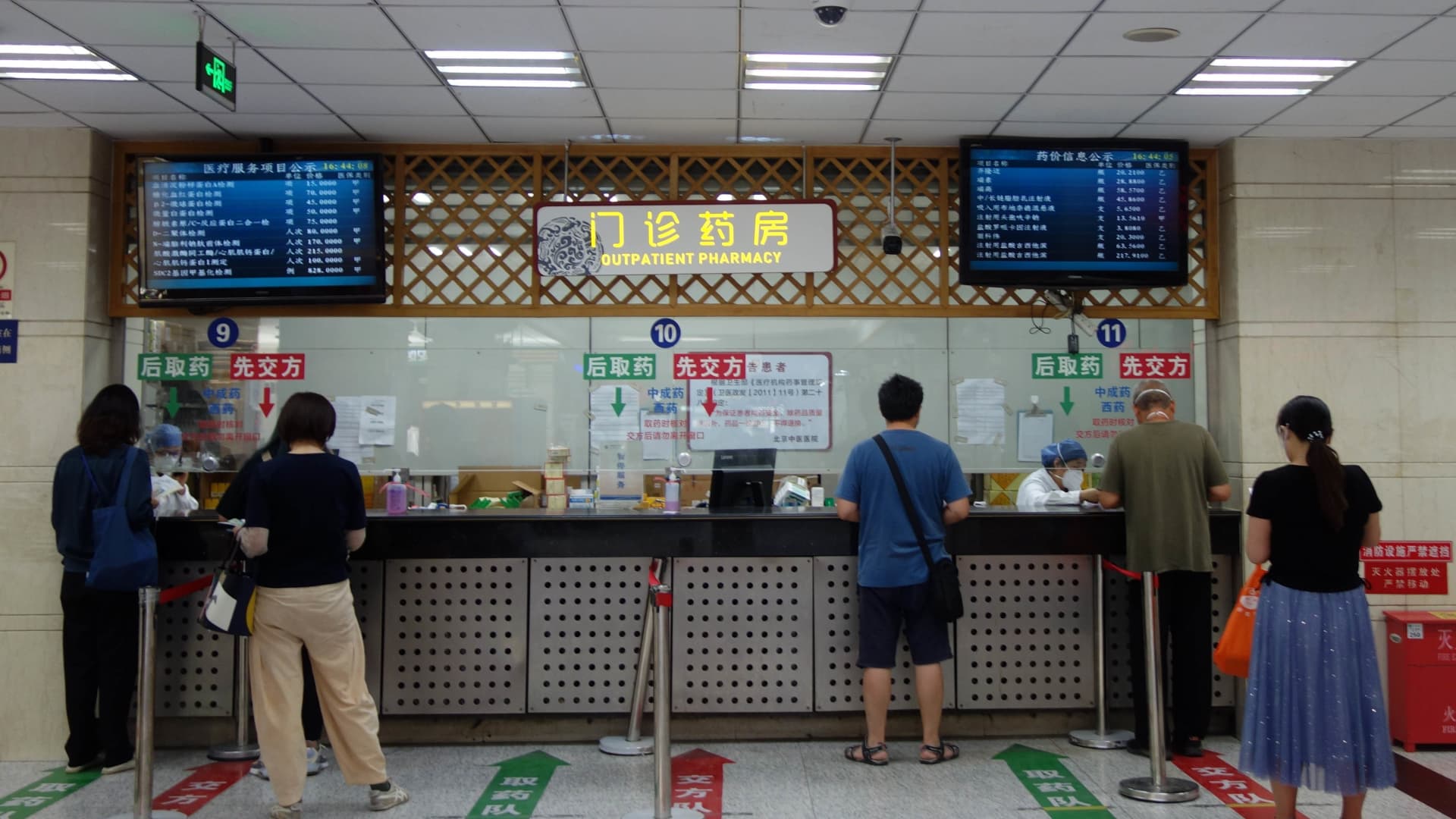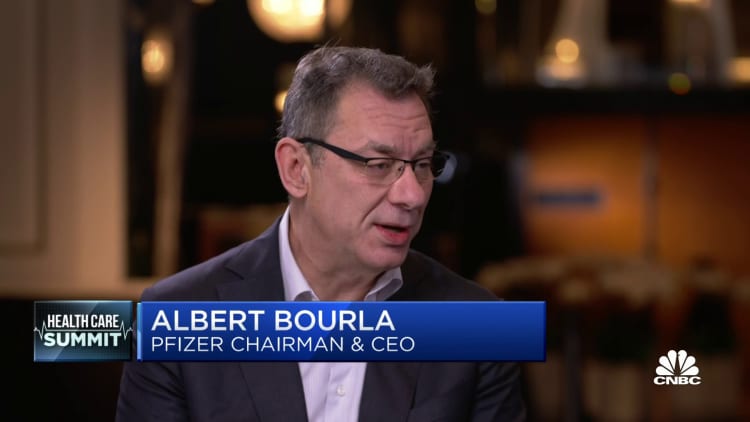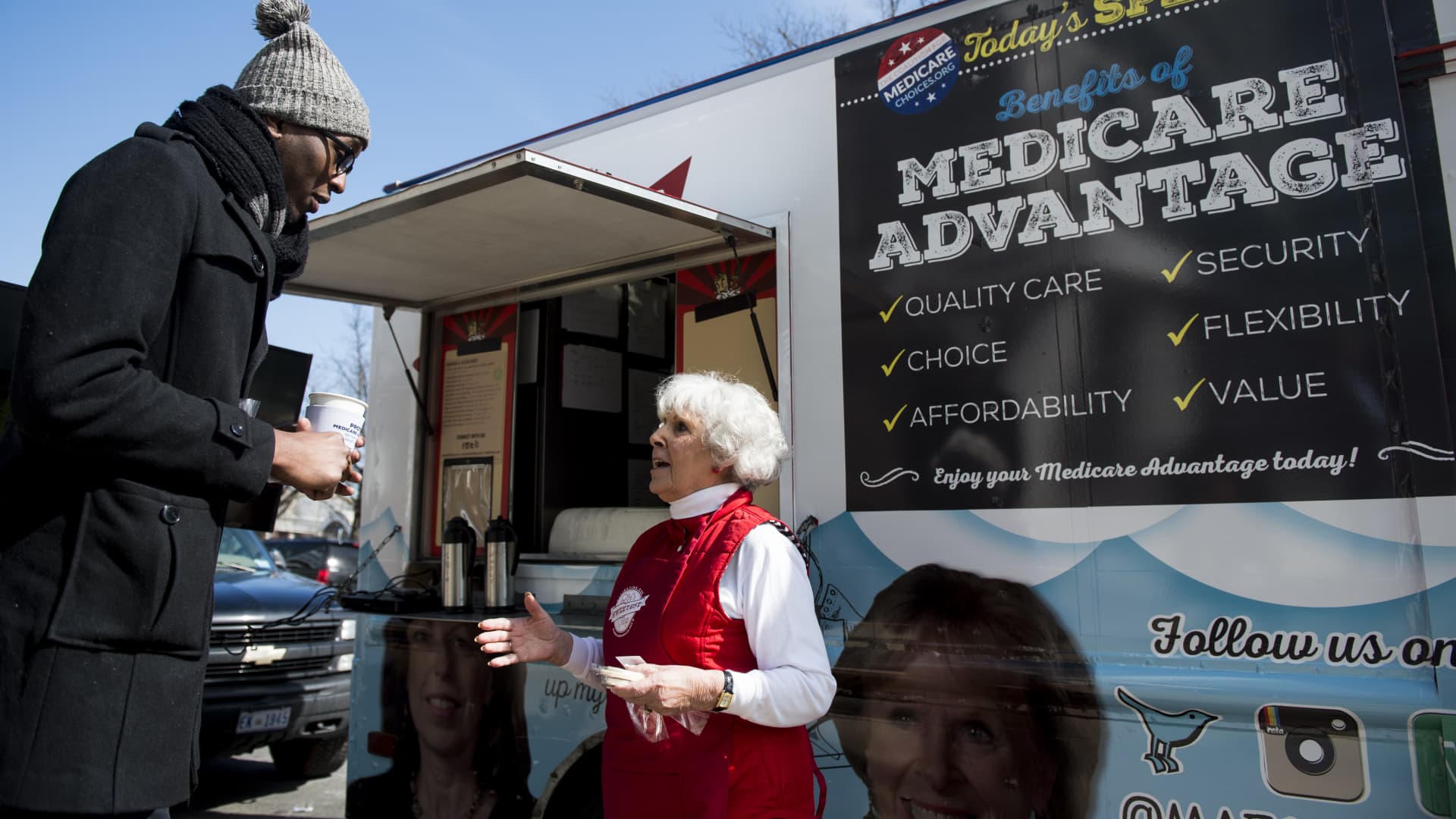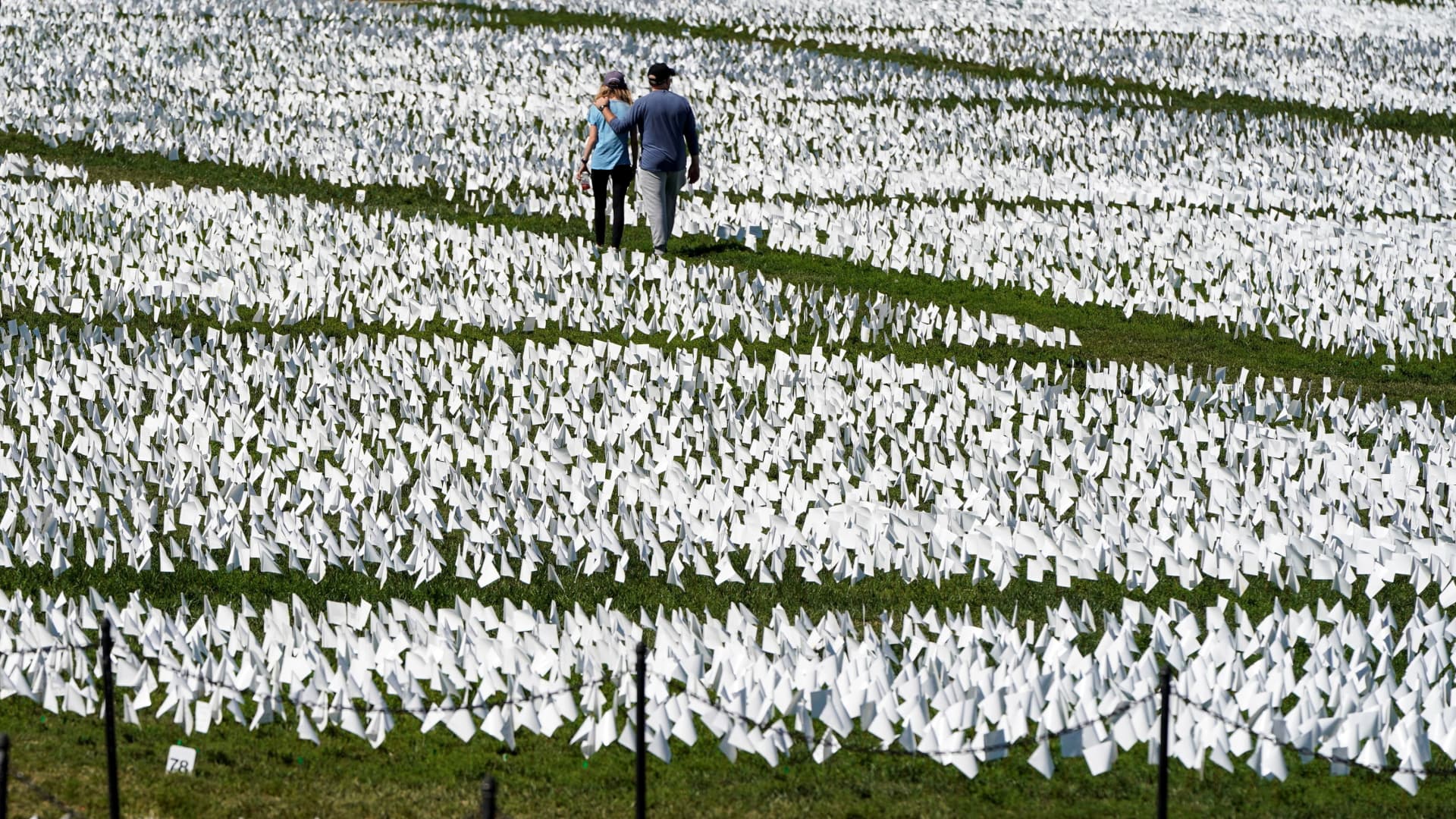Chinese hospital says half of its staff got Covid
About half of the nearly 2,000 workers at the Beijing Hospital of Traditional Chinese Medicine got Covid-19, director Liu Qingquan said Wednesday.

Locals line up for medical treatment at the Beijing Hospital of Traditional Chinese Medicine on June 1, 2022.
CFOTO | Future Publishing | Getty Images
BEIJING — About half of the nearly 2,000 workers at the Beijing Hospital of Traditional Chinese Medicine got Covid-19 during the latest wave, director Liu Qingquan said Wednesday.
Liu told reporters the workers all recovered by taking traditional Chinese medicine. He said out of the 1,000 staff infected, only one, who already had high blood pressure, developed pneumonia.
China has encouraged the use of traditional Chinese medicine alongside Western treatment for Covid. Rather than pharmaceutical drugs, traditional Chinese medicine relies on herb-based remedies and natural methods to help the body heal itself.
The omicron variant swept China in December as authorities abruptly ended most Covid controls. Local businesses reported the majority of their staff fell sick within a week, before recovering. Tens of thousands of people rushed to fever clinics in a single day in the city of Beijing alone, local authorities said.
Due to the surge in patients, doctors and nurses couldn't return home for several days, Liu said. He said the health workers sometimes had to work while they themselves were sick and taking medication.

In the last two weeks, officials in Beijing city and other Chinese urban centers have said they've passed the worst of the Covid outbreak.
While the situation has eased, "from the perspective of the hospital, our pressure is still very great," Wang Guiqiang, director of the infectious diseases department at Peking University First Hospital, said Wednesday. That's according to a CNBC translation of his Mandarin-language remarks.
The hospital turned additional wards into areas for intensive care, and trained doctors to become ICU nurses, Wang said.
Pfizer's Covid-19 drug
In the wake of China's latest Covid wave, locals also rushed to stock up on medicine, resulting in shortages and long lines outside pharmacies last month.
Pfizer's Paxlovid drug for treating Covid remains in short supply domestically, Wang said. But he said the drug will soon be produced in China by a local company.
Pfizer has signed an agreement with a local partner to manufacture Paxlovid in China, CEO Albert Bourla said Monday at the JPMorgan Health Care Conference, according to a transcript. He said local production could begin in as soon as three or four months.
Read more about China from CNBC Pro
Paxlovid will only be covered by China's basic national health insurance until March 31, China's Healthcare Security Administration said Sunday. The drug failed to make an annual list of insurance-covered medicines because Pfizer asked for too high a price, the administration said.
CEO Bourla said what China wanted to pay was "lower than the lowest of the middle" price bracket — a range that's 60% to 70% below what high-income countries pay.
"We didn't agree," Bourla said. "They are the second highest economy in the world. And I don't think that they should pay less than [El] Salvador."
If negotiations don't change the situation by April, Bourla said, "we will continue with the private market in China, which is significant."
Demand for Paxlovid from China has exploded from a few thousands to the millions, he said, without elaborating.
Merck and Chinese companies are also selling Covid drugs to the local market.
Focus on treatment
Since mandatory testing for Covid ended in early December, official numbers on the local outbreak have dropped off sharply.
When asked about Covid deaths, Wang said calculating excess deaths was the best way, such as comparing figures to December 2021.
It's not clear how soon those numbers would be available. China has said only a handful of deaths meet its criteria for being tied to Covid. Anecdotes indicate overall deaths in the country have increased since December.
"At this time I don't think it's necessary to look into every single case. The priority should be treating patients," said Liang Wannian, executive vice-dean of the Vanke School of Public Health at Tsinghua University. That's according to a CNBC translation of his Mandarin-language remarks Wednesday.
Liang said the country would watch for new Covid variants and report them in a timely fashion. He did not go into much detail on the procedures for doing so.
A change in the hospitalization or death rate associated with Covid would be the earliest indication of a new variant, Dr. Chris Murray, director of the Institute for Health Metrics and Evaluation, said in late December. He said the likelihood of a new Covid variant emerging in China is low.
The World Health Organization said this week that China is providing more information on the Covid-19 outbreak, but the country is still heavily underreporting deaths, according to Reuters.
On Wednesday, Liang said that especially in rural areas, the most difficult phase of China's Covid wave has passed.
But he said according to China's latest Covid policy, local authorities facing a large outbreak could still move classes online and limit large gatherings.

 Tfoso
Tfoso 
































